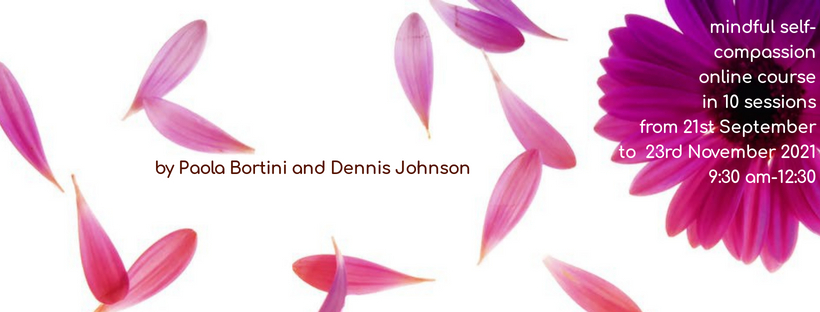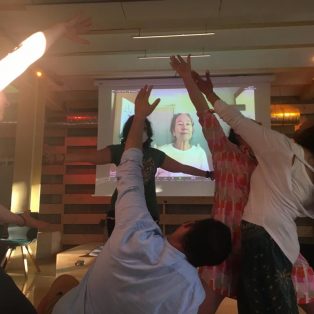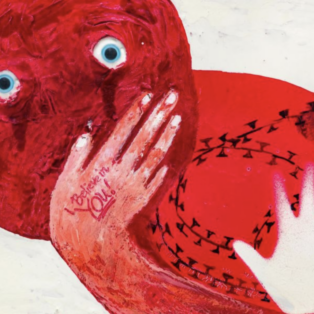What is Mindful Self-Compassion?
Self-compassion is the natural ability to become aware of your needs and emotions and to respond to them with care and support.
Mindful Self-Compassion (MSC) is a pathway designed by the clinical psychologists Kristin Neff and Cristopher Germer for the purpose of discovering and cultivating the ability for kindness and compassion towards oneself.
This ability of treating ourselves with the same benevolence with which we treat our loved ones is an absolutely essential skill for our own well-being as well as for our capacity of taking care of others.
Self-compassion may have therapeutic benefits, but it is not a form of therapy! The program emphasizes growing your own emotional resources so you can deal with difficult emotions, both past and present.
The program has been investigated and tested by the experience of thousands of participants as well as hundreds of scientific research articles, ensuring an effective and useful format for everyone that brings about deep and lasting changes.
Self-compassion helps you have more satisfying and enduring interpersonal relationships, and it increases personal motivation as well as the ability to be effective and resourceful in personal choices.
The practice of self-compassion is grounded in mindfulness, or the ability of opening and becoming present to our inner world and life events. It is also founded on the experience of a shared closeness with all human beings and on the intentional and somatic practice of actively taking care of one’s emotional, cognitive and psychophysical spheres.
What is the scientific evidence on the efficacy of the MSC protocol?
Today there is solid scientific literature on Mindful Self-Compassion. Thousands of studies around the world have confirmed the importance of what we all intuitively know: before anything else, it is fundamental to be well and in harmony with oneself.
Scientific literature confirms that self-compassion is one of the greatest predictors and promoters of psychological well-being.
Its effects are found in so many aspects of bodily and mental well-being that it is now a central quality in almost all modern approaches to health promotion.
There are proven links between self-compassion and the reduction of anxiety and depression, the increased ability to manage stress and difficult emotions, and the ability to undertake and consolidate healthy habits, such as engaging in physical exercise and healthier eating.
You can find the complete MSC Research Bibliography on the website of Kristin Neff.
How is the course structured?
The course follows the guidelines of the Center for Mindful Self-Compassion for adaptations to the online environment and will therefore be conducted in 10 weekly appointments, beginning on Tuesday, September 21, 2021 at 9:30 am CET.
In addition to attending the meetings, participants are invited to devote time each day to the meditation practices introduced during the course.
How to participate
The weekly meetings will feature ample time for meditation practice and experiential sharing, under the guidance and support of Paola Bortini and Dennis Johnson, trained MSC-teachers.
No previous knowledge is required, the course is open to all.
Sessions will be conducted via Zoom, all you need is a computer with a camera and microphone and a stable internet connection.
One-hour informational meeting is scheduled for August 17, 2021 at 9:30 am, online, on the Zoom platform. The link to sign up for the presentation meeting is https://www.bortini.it/msc1708/.
You will receive instructions on how to connect once you have registered.
Calendar
Preliminary session: September 21, 9:30 am – 12:30 pm CET (to familiarize yourself with the program, the group, and the Zoom platform)
Course sessions: September 28, October 5, 12, 19 & 26, November 2, 9, 16 & 23 (9:30 am – 12:30 pm CET with a twenty-minute break).
Material provided
Main topics addressed
- Dealing with difficult emotions with greater equanimity
- Motivating oneself with kindness instead of criticism
- Working through difficult relationships
- Dealing with caregiver fatigue
- Practicing the art of savouring and appreciating oneself
- Practicing meditations on mindfulness and self-compassion and applying them to daily life
- Understand the science of self-compassion
- Using self-compassion to live in accordance with our core values
Costs
€390.- (Early Bird €340.- until August 21, 2021)
In the days following the receipt of the registration form – which can be requested by email – bank details to pay the course fee will be provided.
Contacts
You can contact the course organizers Paola Bortini (+43 6803141651) or Dennis Johnson (+43 6641342223) for questions, clarifications or a free introductory interview.
Enrolment
Registrations are collected through email addressed to Paola Bortini (paola.bortini@limina.at) or Dennis Johnson (office@dennis-johnson.com).
Detailed directions will be forwarded to all registrants before the start of the course.
Paola Bortini
Sociologist, expert in essential oils for well-being, Emotions Mentor Coach, Teacher of Embodied Mindfulness according to the SPT protocol (Social Presencing Theater by Arawana Hayashi), Certified Teacher of Mindful Compassionate Parenting (created by Jörg Mangold), trained teacher at the Center for Mindful Self-Compassion.
Email paola.bortini@limina.at
Tel. +43 6803141651
CONTACT PAOLA BORTINIDennis Johnson
Sociotherapeutic attendant at Windhorse Integral Mental Health Vienna, trained teacher of MBSR and MSC, and freelance lecturer, translator and interpreter. Previously Tibetan and Buddhist Studies scholar and librarian at Vienna University as well as clinical research assistant at Oxford Mindfulness Centre.
Email: mindfulnessecura@gmail.com
Tel +39 3494088764
CONTACT DENNIS JOHNSON







